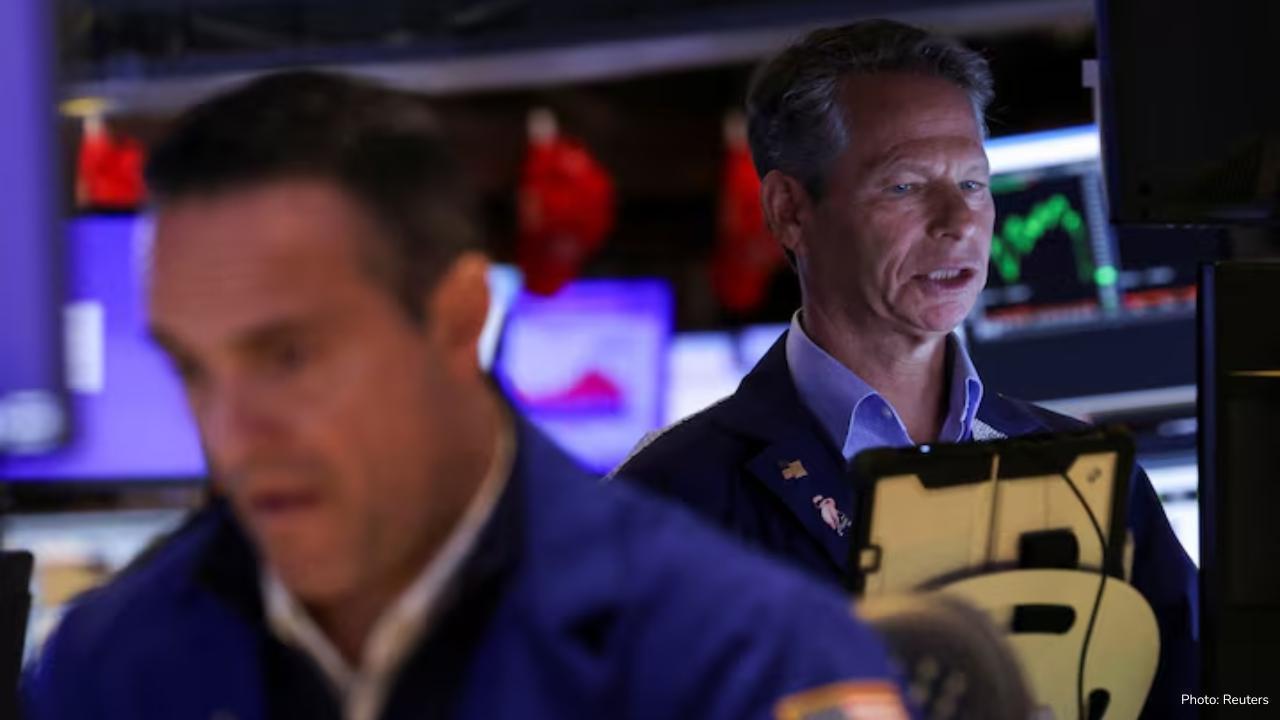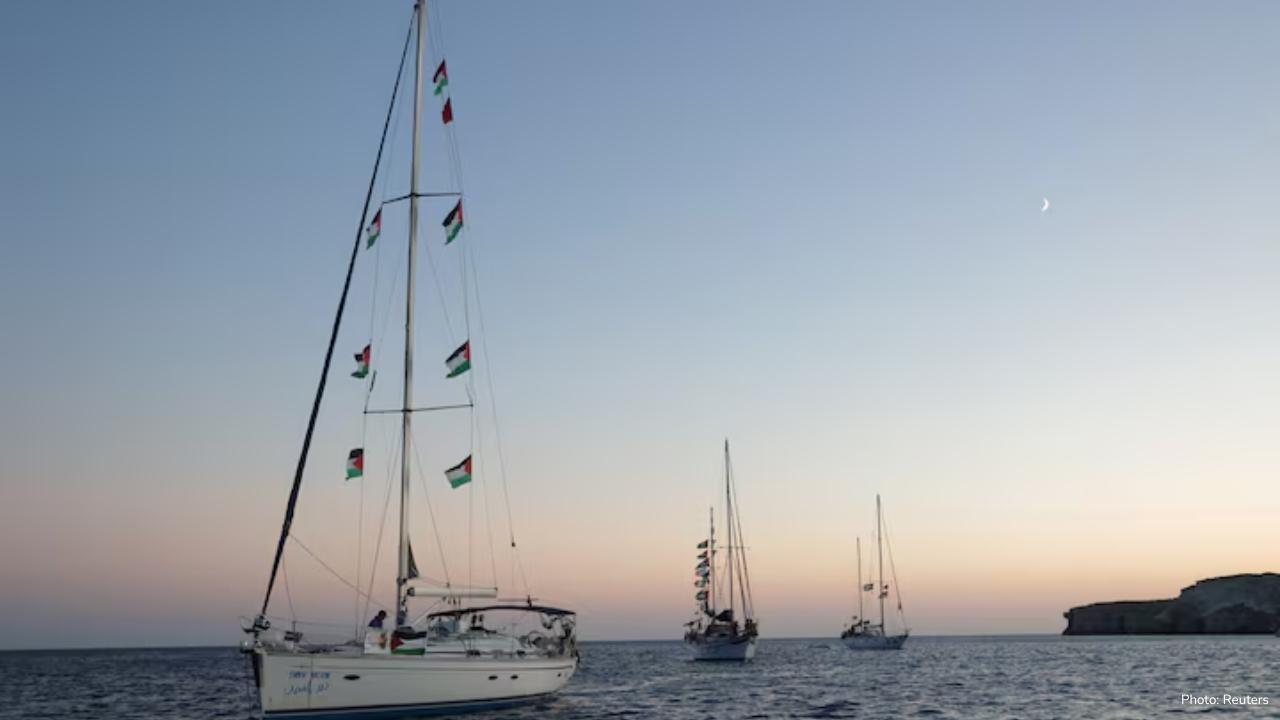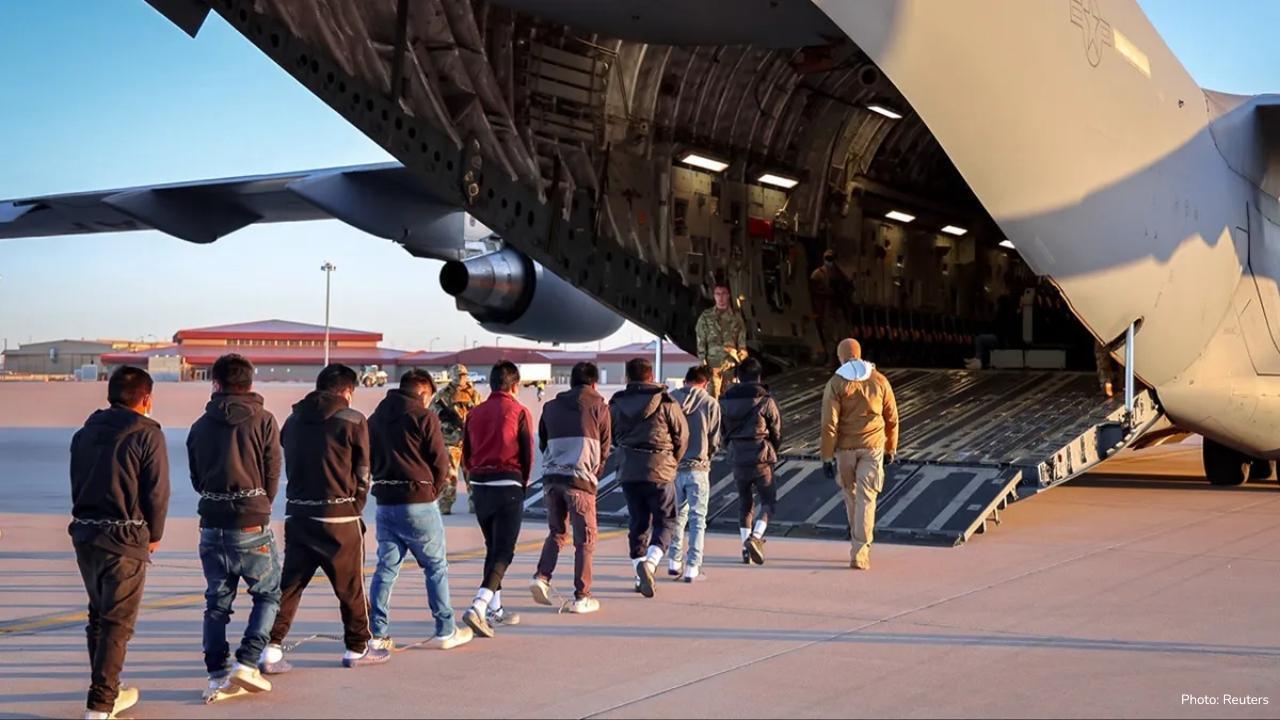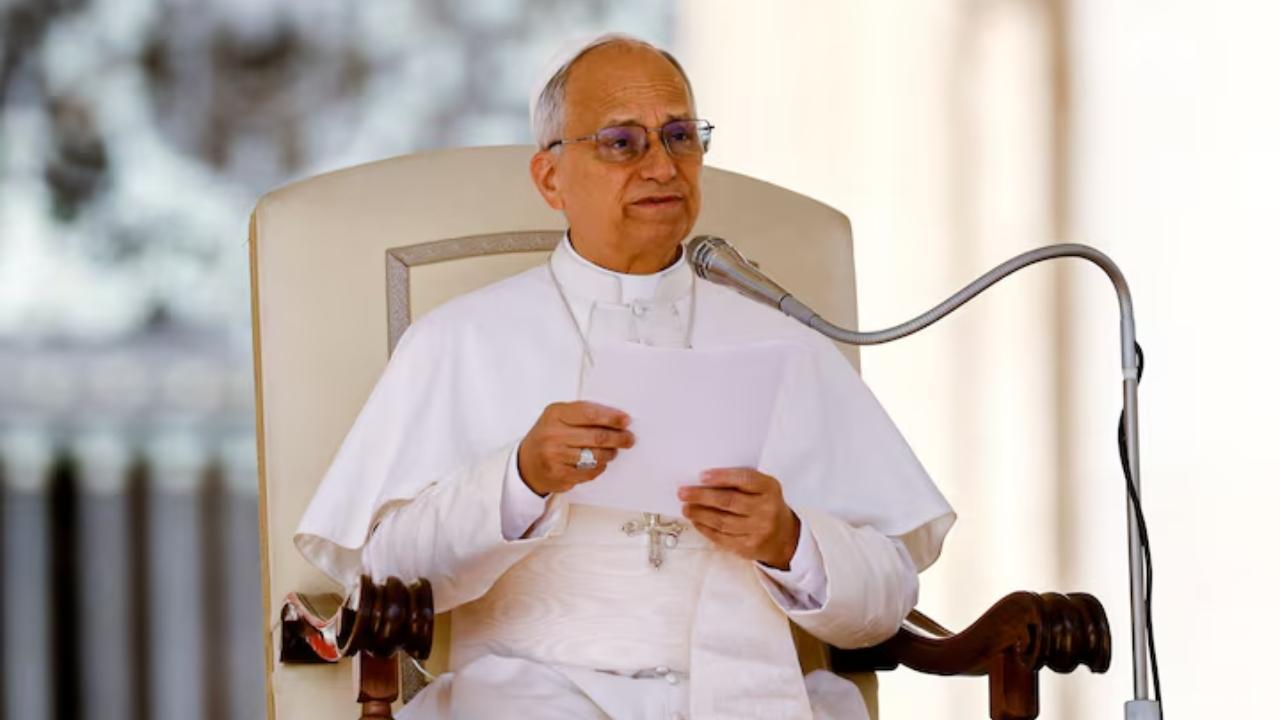
Post by : Monika
On September 30, 2025, Italy announced that it would no longer provide naval protection to an international aid flotilla heading toward the Gaza Strip. This decision came after growing concerns about possible confrontation with Israeli forces, as the flotilla approached waters near Gaza. The announcement sparked discussions about humanitarian aid, maritime law, and regional security in the Middle East.
The aid mission, known as the Global Sumud Flotilla, consists of more than 40 civilian boats carrying over 500 participants. Among them are parliamentarians, lawyers, doctors, humanitarian workers, and prominent activists, including Swedish climate activist Greta Thunberg. The flotilla aims to challenge Israel’s naval blockade of Gaza and deliver much-needed humanitarian aid directly to the Palestinian people.
Italy had initially agreed to provide a naval escort to ensure the safety of the flotilla while it traveled through international waters. However, the Italian Defense Ministry announced that the frigate assigned to the mission would stop escorting the flotilla as it enters the “critical zone,” approximately 150 nautical miles from Gaza’s coast. This decision was made after evaluating the potential risks of confrontation with Israeli naval forces.
The Italian government emphasized that its withdrawal does not mean abandoning the humanitarian mission but is instead a precautionary measure to avoid escalating tensions. Prime Minister Giorgia Meloni stated that Italy remains committed to supporting humanitarian aid for Gaza but must also ensure the safety of Italian personnel involved in the escort operation.
The flotilla’s organizers, however, rejected Italy’s suggestion to reroute the aid through Cyprus. They insisted on continuing directly toward Gaza, stating that bypassing the blockade would defeat the purpose of the mission. The organizers have repeatedly emphasized that the convoy’s goal is to deliver aid to Palestinians in need and to highlight the humanitarian crisis in Gaza. They believe that international attention can help pressure Israel to ease its blockade.
Earlier in the mission, the flotilla experienced an attack while in international waters near Greece. Drones reportedly dropped stun grenades and irritants onto several vessels, causing minor damage but no injuries. While Israel has not officially claimed responsibility, the incident raised fears of interception and heightened the urgency of the flotilla’s security concerns. Israel has repeatedly stated that it considers the blockade lawful and intends to prevent any unauthorized vessels from entering Gaza.
The situation has drawn global attention. Pope Leo issued a statement urging the flotilla to proceed with caution, emphasizing the need for dialogue and peaceful measures rather than confrontation. The Vatican called for international cooperation to ensure that humanitarian aid reaches those in need without provoking military escalation.
The flotilla organizers, however, remain steadfast. They have publicly stated that they will continue their journey, despite warnings and potential risks. They are prepared for interception and believe that international law allows civilian vessels to deliver humanitarian aid to regions under blockade. Activists argue that the blockade has caused immense suffering in Gaza, limiting access to food, medicine, and essential supplies.
The withdrawal of Italy’s naval support has led to heightened tensions. Experts say that while the flotilla’s mission is primarily humanitarian, it has political implications. Israel views such flotillas as challenges to its blockade and has warned that attempts to breach the maritime restrictions could provoke defensive actions. Meanwhile, the flotilla seeks to draw international attention to the humanitarian situation in Gaza and pressure Israel to ease the blockade.
Maritime security in the region is a critical concern. The Red Sea and surrounding waters are vital routes for global shipping and trade. Any confrontation between the flotilla and Israeli forces could disrupt shipping traffic, impact oil shipments, and escalate regional tensions. International observers are closely monitoring the situation to prevent any incident that could lead to wider conflict.
The humanitarian situation in Gaza is severe. Years of conflict, blockade, and restricted access to resources have left many residents without basic necessities. Hospitals are overcrowded, electricity supply is limited, and clean water is scarce. The flotilla aims to bring medical supplies, food, and essential goods to communities in desperate need, highlighting the urgent need for international assistance.
Legal experts have debated the rights of civilian vessels under international law. Many argue that humanitarian missions are protected, even when traveling to regions under blockade, provided they do not carry weapons or pose security threats. The flotilla’s organizers have emphasized that their vessels are civilian, carrying only aid and volunteers, and that they intend to follow maritime law throughout their journey.
The Italian decision also reflects broader diplomatic considerations. Italy maintains strong relations with Israel and other countries in the region. By withdrawing its naval escort, Italy avoids putting its forces in potential danger while still supporting humanitarian goals. Italian officials have stated that their role in the mission is limited to safety and logistical support and does not extend to political disputes or enforcement against Israel.
Observers note that the flotilla’s determination to continue despite reduced protection highlights the commitment of its participants to the Palestinian cause. Activists believe that the international visibility of the flotilla can bring attention to the blockade and encourage diplomatic solutions. Their actions aim to show solidarity with the people of Gaza and raise awareness about the humanitarian crisis.
Regional reactions to the flotilla have been mixed. Some countries in the Middle East have expressed support for the mission, praising its focus on humanitarian aid. Others have expressed concern that the flotilla could provoke a confrontation with Israel and worsen instability in the region. International organizations have called for careful coordination to ensure aid reaches Gaza without endangering civilians or escalating the conflict.
The flotilla is expected to enter the “critical zone” in the coming days, where it will be at the closest distance to Gaza under international waters. Israeli naval forces are reportedly monitoring the situation closely. While organizers hope to avoid conflict, they are prepared for potential interception, including boarding or redirection of their vessels.
Humanitarian experts emphasize that the flotilla’s mission is important for highlighting the ongoing suffering in Gaza. Over the past decade, blockades, military operations, and political tensions have significantly affected the civilian population. By bringing aid directly, the flotilla seeks to address immediate needs while also drawing global attention to the situation.
The involvement of well-known activists, including Greta Thunberg, adds visibility and media coverage. Their participation ensures that the mission is widely reported, keeping international audiences informed about conditions in Gaza and the challenges faced by humanitarian workers. This public attention is seen as a way to pressure governments and international organizations to take action to alleviate suffering.
Italy’s decision to withdraw its naval escort does not end the mission, but it introduces new risks. Flotilla organizers must navigate carefully, communicate with international authorities, and rely on the goodwill of other countries to ensure safe passage.
The international community is watching closely, understanding that the actions of this flotilla could set precedents for future humanitarian missions in conflict zones.
In conclusion, the Global Sumud Flotilla represents a complex intersection of humanitarian action, international law, and regional politics. Italy’s withdrawal of naval support underscores the delicate balance between ensuring safety and supporting humanitarian goals.
The flotilla’s determination to proceed highlights the urgency of delivering aid to Gaza and the importance of international awareness and cooperation.
As the flotilla approaches Gaza, the world will be observing the outcome closely. Success could provide much-needed aid and draw attention to the humanitarian crisis, while any confrontation could increase tensions and complicate diplomatic relations. The mission underscores the challenges of providing humanitarian assistance in conflict zones and the importance of careful planning, international support, and adherence to legal and safety protocols.
The coming days will determine whether the flotilla successfully delivers aid or faces obstacles due to security concerns. Regardless of the outcome, the mission highlights the ongoing need for humanitarian action, diplomacy, and international attention in the Gaza Strip.
Italy Gaza Global Sumud Flotilla










Global Markets React to China's Economic Slowdown and Policy Changes
Global markets face uncertainty as China's economic slowdown and policy changes impact investor conf

Gaza Aid Flotilla Faces Unidentified Vessels, Enhances Security
Global Sumud Flotilla reports unlit boats approaching, prompting increased safety measures as they d

U.S. Reduces Military Role in Iraq, Shifts Focus to Syria
The U.S. is scaling back its military presence in Iraq, transferring security responsibilities to th

US Deports 100 Iranians in Deal with Tehran
The US has deported 100 Iranians back to Iran after a deal with Tehran. This marks a rare cooperatio

Pope Leo Hopes Hamas Will Accept Trump's Gaza Peace Plan
Pope Leo expresses hope that Hamas will accept Trump's 20-point Gaza peace plan, urging respect for

Italy Ends Navy Support for Gaza Aid Flotilla Amid Tensions
Italy withdraws naval escort for Gaza-bound aid flotilla, citing risks of Israeli interception. Acti